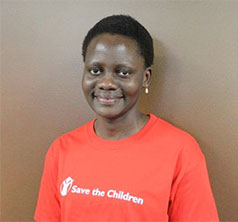
This is a guest post by Helen Mayelle, a former MSc International Development and Humanitarian Emergencies student now working as an Information and Communications Officer for Save the Children’s Ebola Emergency Response in Sierra Leone.
The ABCs of Ebola
My first week at Save the Children was a flurry of health checks, training, and meetings, reviewing policies and documents and so many new faces. It was rather overwhelming!
I arrived in Sierra Leone a week ago, at the dawn of yet another day in the fight against Ebola.
I am glad to run into my colleague Emma who has also just arrived in Sierra Leone. At first she didn’t recognise me (Yes. This is how engrossed in the fight one gets here) but when she finally did, she yells out my name, equally glad to see me. We move hastily towards each other and almost hug when someone promptly reminds us of ABC (Avoid Bodily Contact) – one of the key messages to preventing the deadly Ebola virus disease.
“I want to hug you,” she said quietly. “Me too” I replied. She shows me where to get my breakfast and for a while, we are silent, absorbing the realities around us. We feel the pressure of coming to understand the realities of living with the ‘killer’ virus Ebola.
If a visitor feels like this, what about the people of this and other countries affected by the epidemic? How do they feel? How do they face each day with the bravery and resilience that I see? A good example are the Sea Coach boys who ensure travellers like me arrive safely to Freetown across the Atlantic Ocean from Lungi airport on small motor boats at the wee hours of the night .
The most part of my first day was spent trying to make sense of these mind-boggling and heartbreaking realities. These are now my realities. “Face up to it!” I told myself.
Why am I here?
When I told people that I was going to Sierra Leone, everybody thought I was crazy – this only made me want to come here even more. I kept on thinking about how helpless my brothers and sisters in Sierra Leone and Guinea and Liberia are. Something as to be done, I want to help. How can I help? I thought. Then Save the Children presented me with this opportunity that is positively changing my life. It is really spiritually satisfying for me and I have come to appreciate the gift of life a lot more.
I had just completed my MSc in International Development and Humanitarian Emergencies from LSE, other job offers were in place but I took up this challenge. Save the Children’s response and approach to this complex emergency is impressive. Their staff safety and security measures are outstanding, which is reassuring as staff health and safety are critical in this mission. I was thoroughly trained, briefed and given the opportunities to understand the nature of this deployment and a free choice to decide whether or not to take up the post. These put me and my family’s fears and anxiety to rest, and my family knows that in the end I want to be useful and do whatever I can to help.
At Heathrow airport, personnel asked me if I knew what I was facing over there. I told them I did and one lady also asked me why I had decided to go, especially with the Christmas season right around the corner.
I am not alone, as many have gone already. Save the children alone has deployed up to 200 international workers on the Ebola emergency so we are a family here and the communities are happy to see us too. I am happy to be here.
I think of a children’s story I was once told, it’s the best analogy to answer why I am here. There is a little boy on the beach and numerous starfish have washed ashore. This boy was picking up and returning the starfish back into the ocean when a man asked him why he was doing that and told him that he was wasting his time. As he threw another one into the ocean, the boy replied, “even if it is only that one that survives, it will make a big difference”.
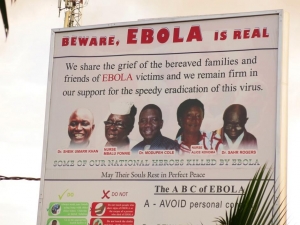
People are living their lives very carefully. People are getting on with their lives thanks to support from local and international organisations. Everywhere you go people are talking about Ebola. From radio programmes, open-air awareness announcements, posters, stickers to ordinary chit-chats, it’s all about Ebola and how to stay safe. This is a good sign for NGOs and our partners who are here to stop the spread of Ebola. And what is even more impressive is the evidence that people are actually heeding these awareness messages.
The actual ABC messages for Ebola are these:
- Avoid bodily contact
- Beware of the signs and symptoms of Ebola which may include fever, diarrhoea and vomiting
- Consult a health professional as soon as possible when you feel unwell. Dialling 117 is one way to do this.
A billboard in the city states, “Prevention is your best protection”. Freetown is also dotted with plastic buckets always full of chlorinated water for everyone to wash their hands. There is always a ‘bucket-tap’ at the main entrance to public and private premises. On arrival you have your temperature taken which is read or shown to you after your hand wash. All these measures take place before going about your daily work. Inside many buildings there is hand-sanitising gel for you to help yourself to but you should also have your own within easy reach.. It is firstly about awareness and prevention here.
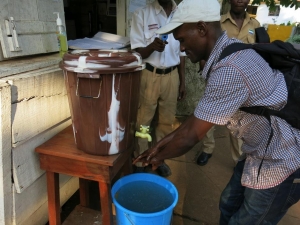
There is a lot of fear surrounding Ebola and people are extra-cautious, but as you work here, you will notice how serious people are about staying safe and following the guidelines. They are vigilant against having bodily contact with anyone, regardless of who they are. People will be cautious of you, and you of them. Initially, I found this difficult to comprehend. As a communicator I’m used to talking and interacting with the communities I meet and work with. I am already finding myself adopting the new habits created by Ebola. ABC! I won’t shake hands, and I have learned how to politely let ‘newcomers’ know these unsociable but necessary measures we have in place to protect ourselves and others from the virus.
So, two days later after my arrival another colleague arrives. Happy to see me she reaches out to shake my hand. I hold myself still and automatically say, “We’re not doing handshakes Caroline. It’s good to see you”. I felt bad when she withdrew her hand. It is insensitive, but necessary.
Find out more about how Save the Children are helping to stop the spread of Ebola here.


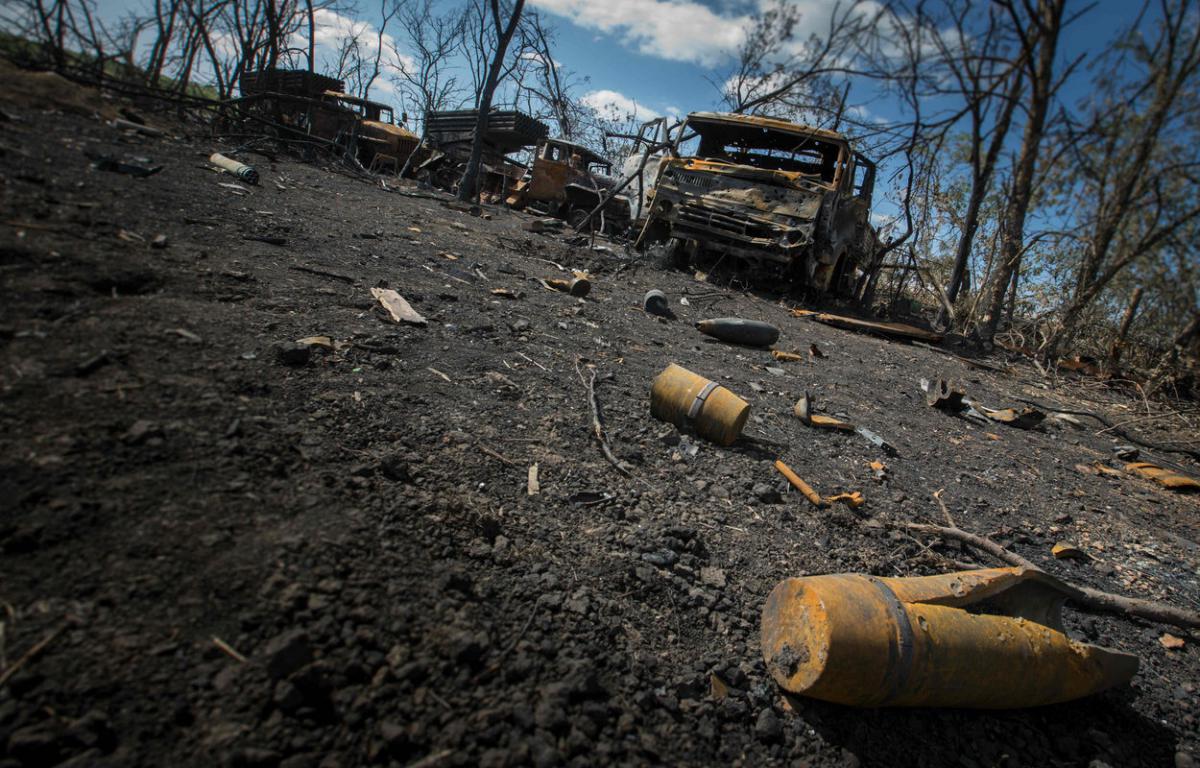

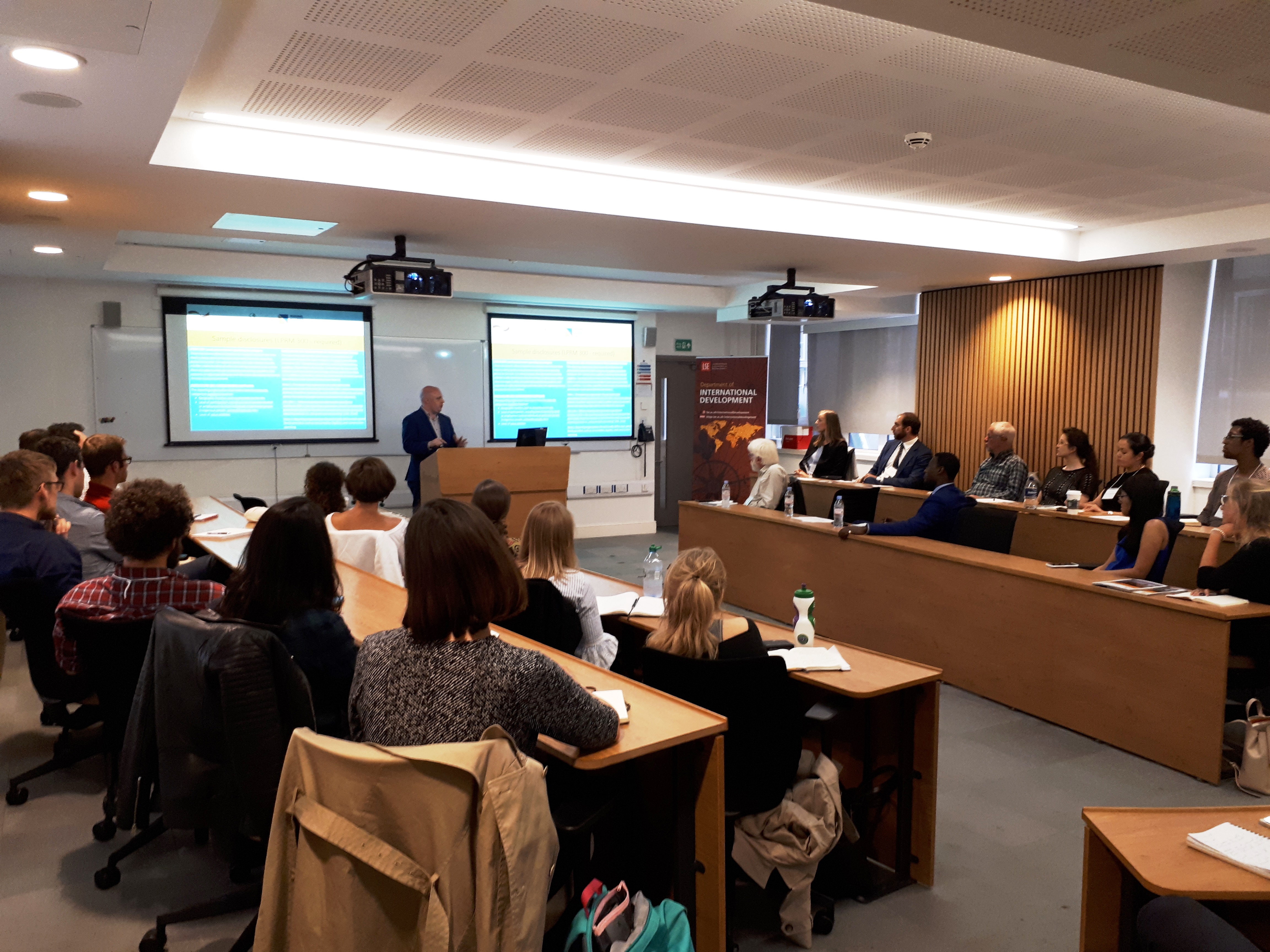
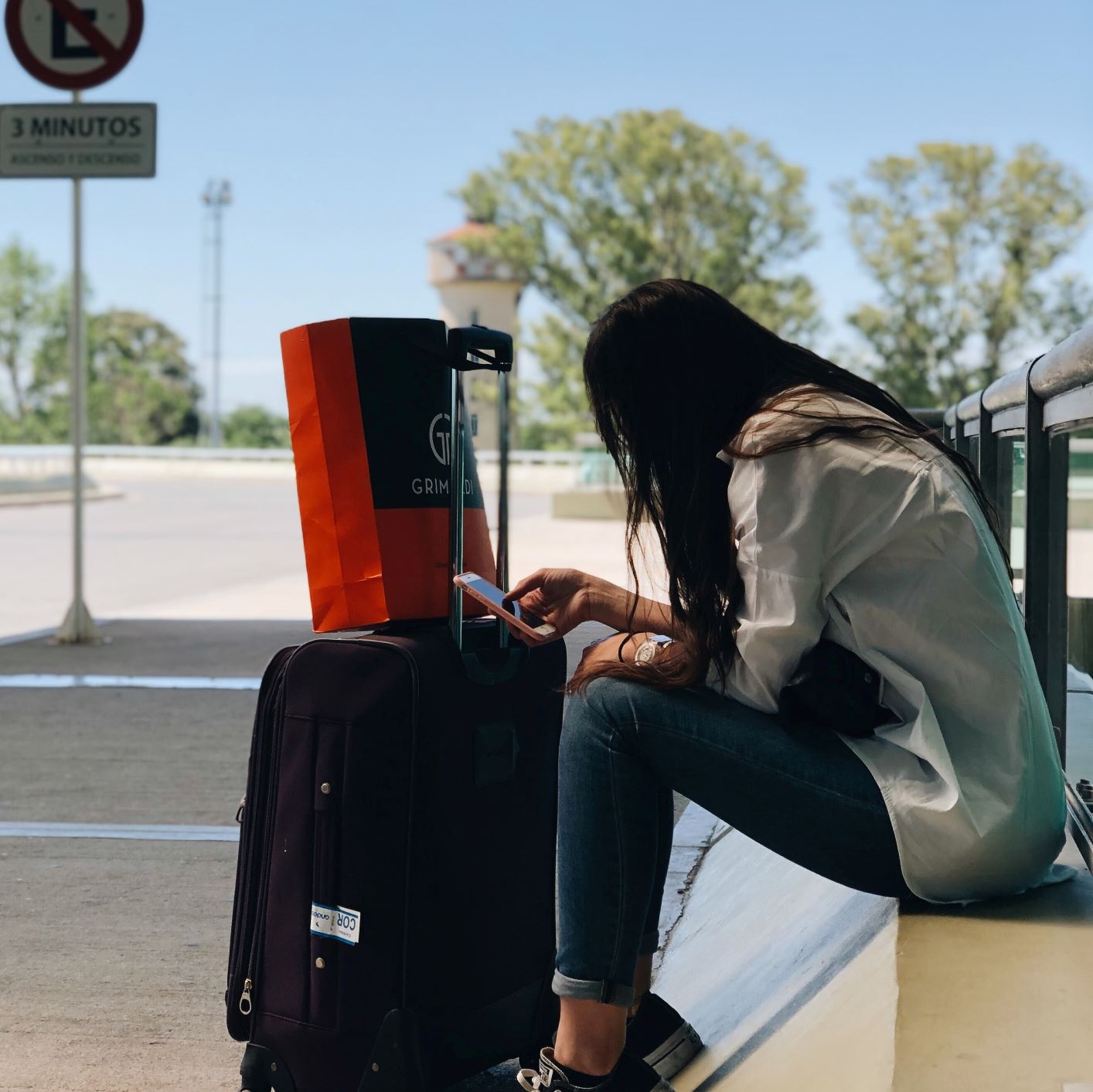
I love your courage. God will reward you dearly for the help your rendering out there. God bless you.
Proud of you Helen! I pray God continues to protect and bless you with great opportunities, good health and life.